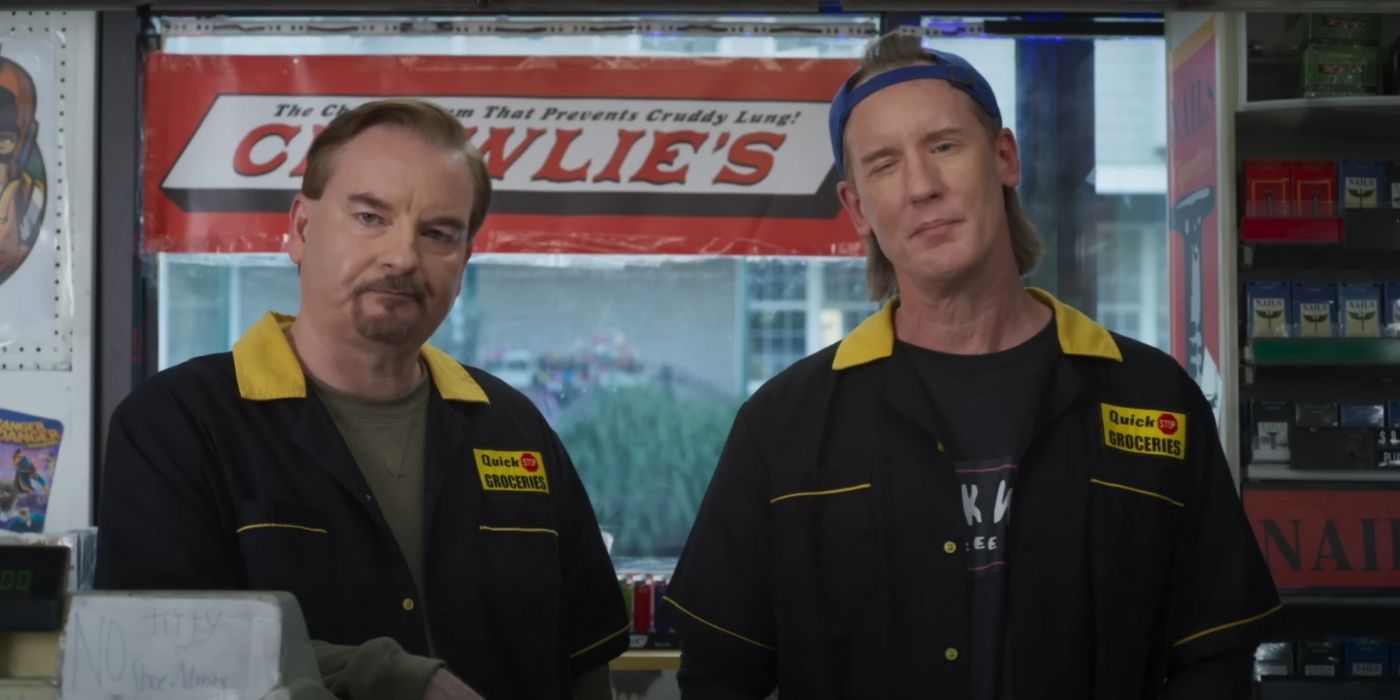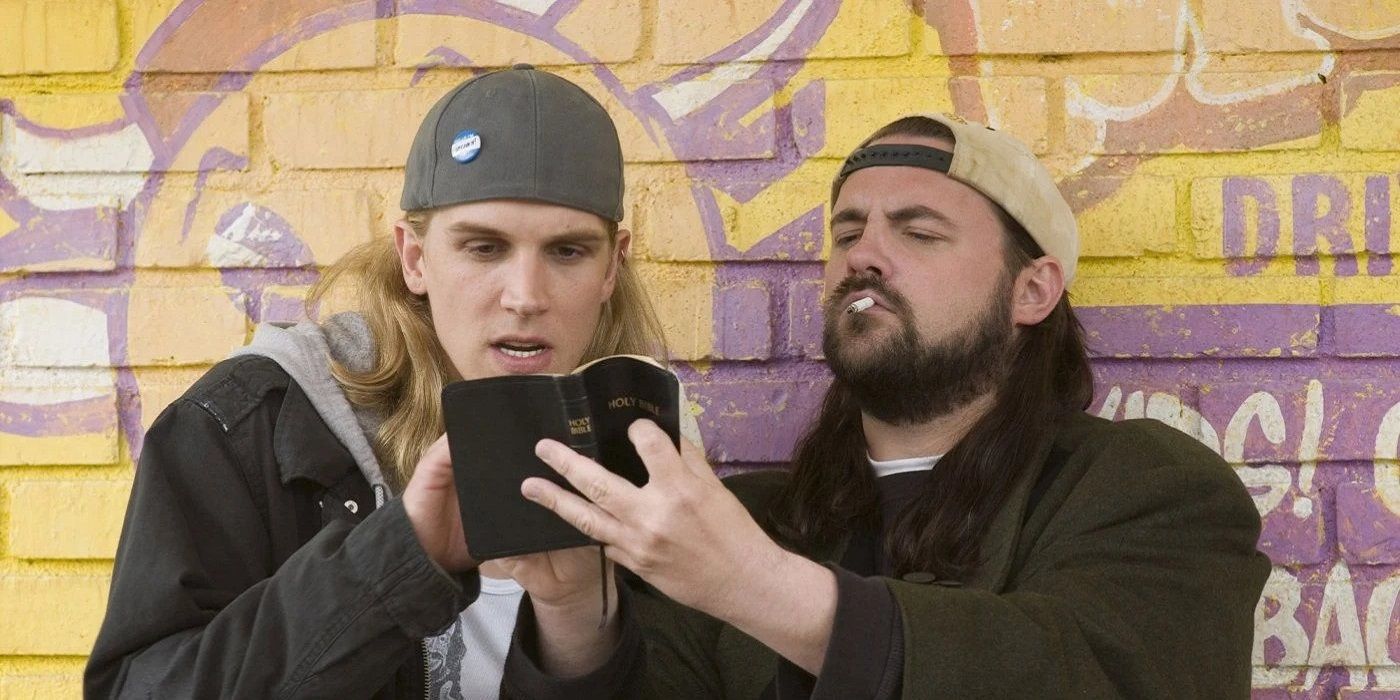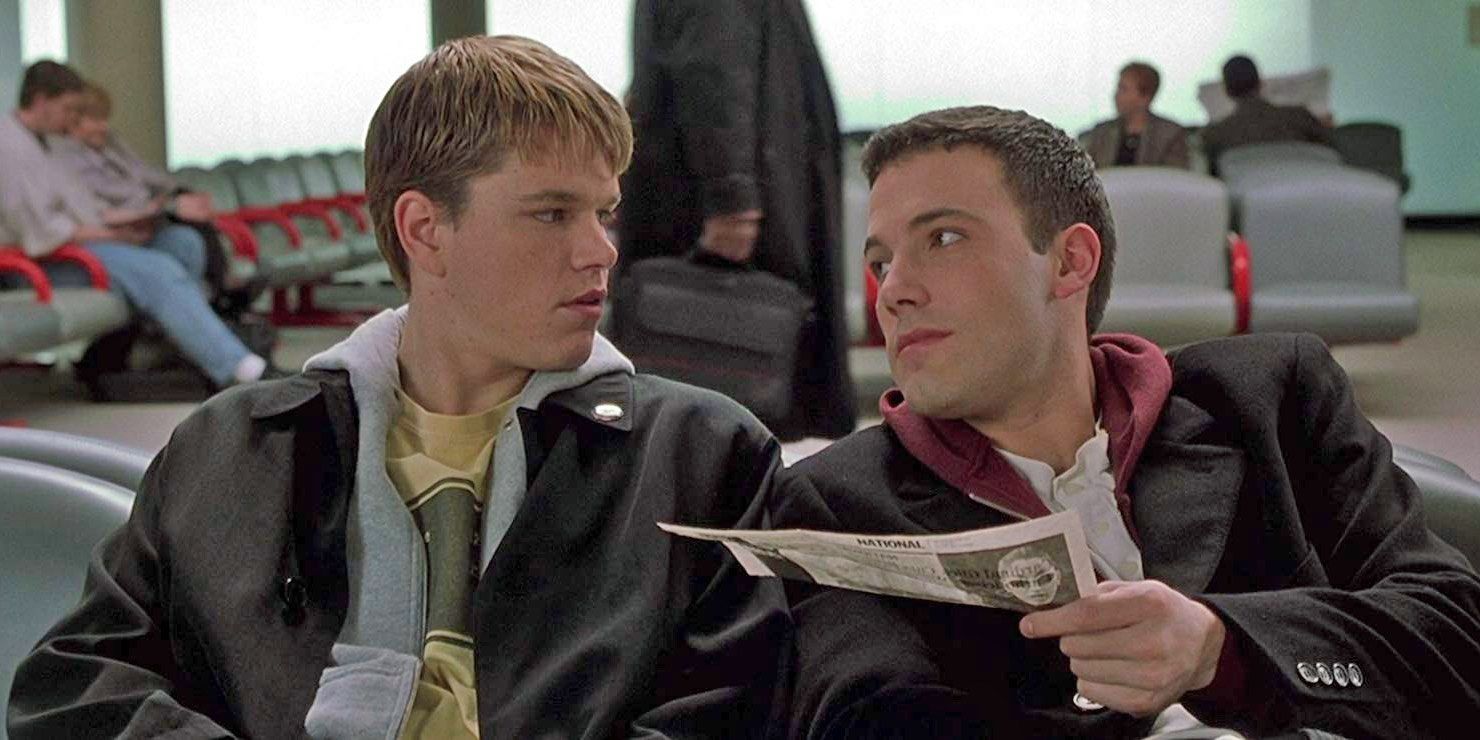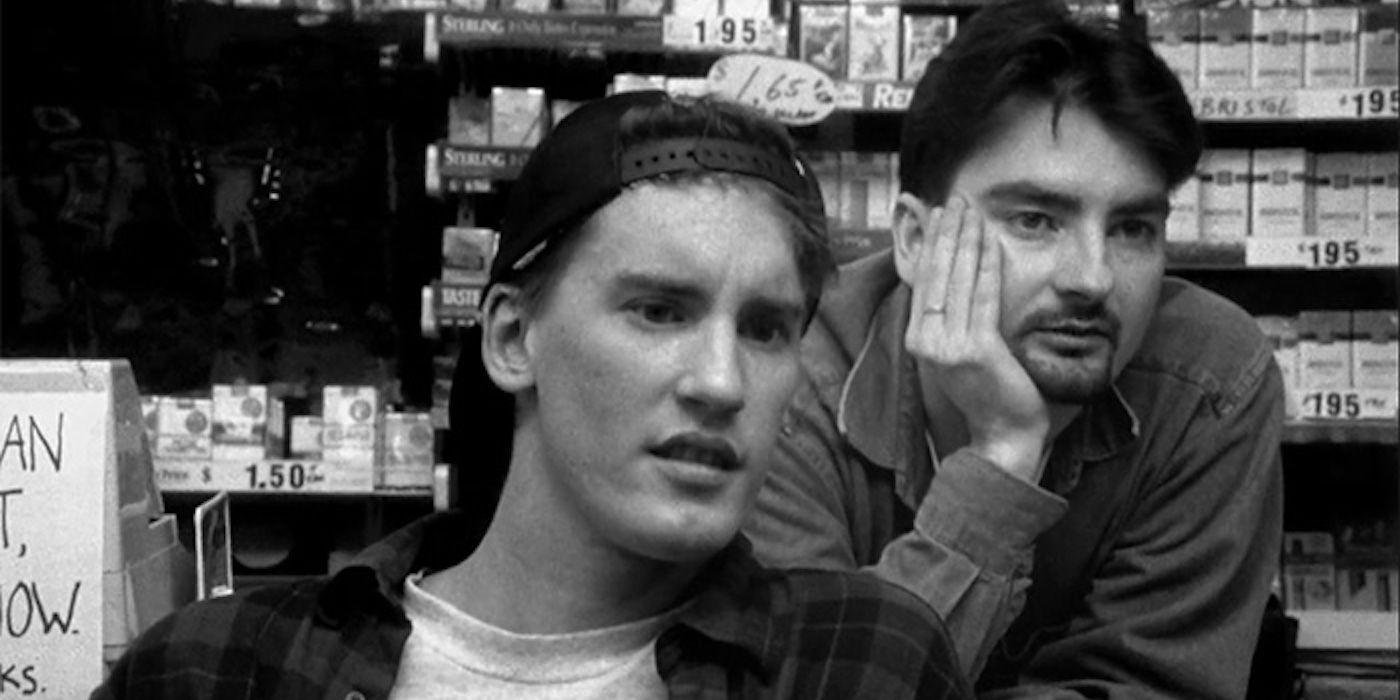Over the course of thirty years making movies, Kevin Smith has had a fascinating career, one full of wild ideas, iconic characters, and interconnected worlds that predate our cinematic universe-obsessed landscape. Smith started in the world of independent cinema, making Clerks at his day job and becoming a Sundance success story. Since these beginnings, Smith had told stories that range from unexpected romances, apocalyptic religious tales, stoner road trips, convenience store hijinks, murderous cults, and Justin Long being turned into a walrus.
Smith has had his ups and downs, as he’s more than willing to share with his audiences at his many Q&As, but he’s also a writer-director that helped usher in the independent cinema boom of the 1990s, introducing large audiences to a world of films that they might not have even been aware existed before watching two clerks talk about nerdy things at a Quick Stop. Smith’s films are always idiosyncratic, surprising, and distinctly Smith.
With Smith having recently released Clerks III, his fifteenth film, what better time to revisit Smith’s filmography, from his film school documentary gone wrong, to Dante and Randal’s latest tale. Also, side note for this list, Smith’s other 2022 film, KillRoy Was Here, is not included, since it’s only available as an NFT. Also, not included in Clerks: The Animated Series, which would’ve been a contender for the top spot. Seriously, it’s only six brilliant episodes, if you’ve never watched it.
With that in mind, let’s snootch to the nooch and get down to ranking Smith’s filmography.
19. Yoga Hosers
The second part of Smith’s as-yet-unfinished True North trilogy, Yoga Hosers is the writer-director’s frustrating and scattered attempt at making a teen movie, which also includes an exploration of Nazis in World War II, a pair of Satanists (played by Austin Butler and Tyler Posey), and a collection of Nazi clones made out of bratwurst called “bratzis” (also played by Smith). Starring Harley Quinn Smith and Lily-Rose Depp as best friends both named Colleen, Yoga Hosers seems like an attempt for Smith to bring a podcast joke to the big screen, and also for Kevin Smith and Johnny Depp—who reprises his Tusk role of Canadian detective Guy Lapointe— to make a movie together with their daughters. The result is an exhausting low for Smith, and an example that sometimes the funniest whims on a podcast might not equate to a great film.
18. Jay and Silent Bob’s Super Groovy Cartoon Movie
Yes, we’re only to the second entry on this list, and we’re already throwing in a cheat. Written by Smith and directed by Steve Stark, who created SModimations, animated scenes from Smith’s podcast SModcast, Jay and Silent Bob’s Super Groovy Cartoon Movie! certainly lives in the View Askewniverse, as Jay and Silent Bob become their superhero counterparts, Bluntman and Chronic. While the idea of exploring this duo’s side hustle makes sense in the world of animation, Jay and Silent Bob’s Super Groovy Cartoon Movie is packed with generic dick, fart, and weed jokes, and villain origin stories as a way to flesh out this only 60-minute movie (and you’ll feel every minute of it). At one point, an animated Kevin Smith pops up as himself to tell audiences to expect disappointment with his films, and that’s certainly true with this animated feature.
17. Holidays (“Halloween” Segment)
The anthology film Holidays took eight different yearly celebrations, and crafted unsettling and inventive short films around each. Smith’s segment, “Halloween,” however, focuses less on October 31st and more on a group of cam girls who decide to take out revenge on their virtual pimp. Like much of Smith’s horror work, “Halloween” feels more like a funny idea Smith came up with stretched into a narrative, and even in this short, one can feel this idea stretching too thin. While “Halloween” boasts the most notable filmmaker of Holidays, it’s also one of the film’s weaker editions.
16. Cop Out
The only film that Smith directed but didn’t write, Cop Out has become a punching bag from Smith as much as anyone else. Smith has talked at length about the difficult production, and along with Jersey Girl, Cop Out has become one of Smith’s go-tos for making fun of his career. Smith’s buddy cop film was an attempt to make a film that his father would like, and the supporting cast here is a lot of fun, with Adam Brody, Kevin Pollack, and Seann William Scott all standouts. But the problem with Cop Out is that it is as if someone tried to make a buddy cop film out of the blandest and weary tropes that had already run their course by 2009. It would be very interesting to see Smith direct more works that he didn’t write, but it looks as though Cop Out might’ve scared Smith away from that idea for good.
15. Why I Love New F*cking York
For The Concert for New York City — which took place a little over a month after the 9/11 attacks — several filmmakers associated with the NYC area made short films about this area that they loved. These directors included Woody Allen, Spike Lee, Martin Scorsese, Jerry Seinfeld, and Smith—who made this short about the rivalry between New Jersey and NYC. The short is ultimately a sweet one, as New Yorkers eventually share their appreciation for the people who came from the Garden State to help out after the attacks, showing the two states come together during this trying time. Why I Love New F*cking York is understandably saccharine, the sentiment is a nice testament to both New York City and New Jersey.
14. Tusk
Like Yoga Hosers, Tusk was birthed out of a podcast joke that eventually turned into a feature-length film. Tusk begins with what might be the longest pieces of dialogue that Smith has ever written, and the back-and-forth between podcaster Wallace (Justin Long) and crazed walrus enthusiast Howard Howe (Michael Parks) manages a nice blend of unsettling and weirdness. But Smith embraces the story’s inherent outlandishness, as Tusk becomes a strange body horror film, then an absurd joke—thanks to some of the wildest prosthetics shown on film, and the unfortunate debut of Johnny Depp’s Lapointe. Smith decided to make this film thanks to a Twitter poll where SModcast listeners would vote #WalrusNo or #WalrusYes, and while Tusk begins as a #WalrusYes, it quickly devolves into a definite #WalrusNo.
13. Jay and Silent Bob Reboot
Thirteen years after his last visit to his View Askewniverse of characters, Smith brought back his two most popular characters with Jay and Silent Bob Reboot. With Reboot, Smith is very much embracing his fanbase (the sort of audience who will get equally excited about both a Walt Flanagan and a Chris Hemsworth cameo) in this story that follows the same beats as 2001’s Jay and Silent Bob Strike Back. Did we need to learn that Jay had a long-lost daughter, Millennium Faulken (Harley Quinn Smith)? Probably not. But what makes this film work is when Smith reckons with his past work and revisits characters and stories from his past. In fact, Reboot might be worth watching for Smith’s attempt to reconcile with the criticisms against Chasing Amy, which shows that Smith revisiting the View Askewniverse with care, consideration, and heart can be quite wonderful.
12. Mae Day: The Crumbling of a Documentary
Co-directed and co-written by Smith and his longtime producer Scott Mosier, Mae Day: The Crumbling of a Documentary was filmed as a student project while the pair were still enrolled at the Vancouver Film School. Smith and Mosier attempted to make a documentary that fell apart, thanks to their poor leadership, and Mae Day tells the story of this failed project. In hindsight, Mae Day shows Smith’s strengths and weaknesses as a filmmaker. After this film, Smith would leave film school, take that money, and make his debut feature film, Clerks, showing that if he was going to make it as a filmmaker, he would have to do so on his own terms. However, that also acts as a double-edged sword here, as Smith and Mosier’s inability to work outside their bubble causes problems throughout the production. Mae Day is a fascinating school project/short that works in its own unusual way.
11. The Flying Car
Filmed for The Tonight Show in 2002, The Flying Car reunites Dante Hicks (Brian O’Halloran) and Randal Graves (Jeff Anderson) for another semantic-laden pop-culture referencing conversation, this time, about the possibilities of the flying car. Eight years after Clerks, Smith proves that watching these two together can still be wonderful to watch, as Randal goads on the exasperated Dante, who can’t win no matter what he says. The Flying Car is little more than watching two of Smith’s old favorites back on their bullshit, but sometimes watching two friends have a heated conversation about the modes of transportation promised by The Jetsons is enough.
10. Mallrats
While Mallrats has certainly found its audience over the years, as the world has shifted into a love of superhero discussions and interconnected movie universes, Mallrats still remains the weakest of Smith’s original View Askewniverse pentalogy. Released a year after Smith released Clerks, Mallrats is extremely clunky, with female characters are basically little more than MacGuffins, male characters who offer nothing of substance to their recent ex-girlfriends, and tonal shifts that swing this story from 90s melodrama to some of the grossest jokes in Smith’s career (say, would you like a chocolate pretzel?) Mallrats is primarily most interesting as a piece in the larger View Askew puzzle.
9. Red State
On one hand, Red State—Smith’s first foray into horror—is admirable for being a short turn for the writer-director as he explores a new genre with a remarkable cast, and in a film that is one his best-looking and ambitious, and made for only $4 million. But on the other hand, taking Smith out of the equation, Red State is also an exposition-heavy story, full of clichés and simple characterizations, leading to an ending that—to pull from another Smith title—truly feels like a cop out. Smith’s horror films after this never quite matched this film’s potential, and the first half of Red State is frequently disturbing in a way that came as a surprise to longtime fans of Smith. Michael Parks’ performance as Pastor Abin Cooper is haunting, and the three kids that he captures (Michael Angarano, Kyle Gallner, and yes, Nicholas Braun) all give excellent terrified performances. Smith’s horror take on unshakeable faith is an intriguing idea, but it never quite achieves horror greatness.
8. Jay and Silent Bob Strike Back
Smith first said goodbye to his View Askewniverse with Jay and Silent Bob Strike Back, a cartoony cross-country adventure that put the two drug dealers at the forefront of their own story. At this point, Jay and Silent Bob Strike Back also feels like the most early 2000s comedy possible, not just because the never-ending string of gay jokes (never mean-spirited, but certainly noticeable now), but, I mean, this is a movie where Jason Biggs makes a Loser reference. Doesn’t get more 2000s comedy than that. In retrospect, it’s sort of insane that this movie exists, since this is essentially a collection of inside jokes for fans of Smith’s four indie movies. But that’s also sort of the point, as J&SBSB is like Smith’s thank you to his loyal audience, a silly sendoff packed with cameos and references that was a fitting goodbye for these characters.
7. Jersey Girl
Okay, hear me out: Jersey Girl is the most misunderstood film in Smith’s filmography. After saying goodbye to the View Askewniverse, Smith pulled a 180 and went all-in with his big-hearted nature and sentimentality. There’s no doubt that this is a Smith film, from scattered jokes and cameos that scream of Smith’s style (and even a love interested who works at a video store), but for the first time, we get to see the massive heart that Smith was hiding under Silent Bob’s trench coat, and it’s a welcome change. With Jersey Girl, Smith has something personal to say once more, as he explores his feelings on becoming a father, and imagining what his life would be like if he had to raise his child alone. Jersey Girl suffered thanks to being a post-Gigli film that starred both Ben Affleck and Jennifer Lopez, but Jersey Girl is a tender Smith story, and his best films are the ones where that heart ends up shining through, and that all started with Jersey Girl.
6. Chasing Amy
With Chasing Amy, Smith attempted to confront his inadequacy issues with his then-girlfriend Joey Lauren Adams. In doing that, Smith told a story that wasn’t his to tell, as discussed in Jay and Silent Bob Reboot, one that has understandably criticized over the years. In its first half, Chasing Amy is an impressive leap for Smith in terms of his writing, as we see the story of Holden (Affeck), a comic book artist who befriends and falls in love Alyssa (Adams), who happens to be a lesbian, and how this relationship shifts this friendship, and Holden’s relationship with his best friend Banky (Lee). Chasing Amy could’ve been a fascinating story of what happens when a straight man falls for someone he simply can’t be with and the ramifications of that, but instead, Smith has Alyssa reciprocate Holden’s feelings, an awkward choice that queers (no pun intended) the rest of the film. Sure, Smith seemingly had his intentions in the right place with Chasing Amy, but as we see in Reboot, this is a film that Smith, and fans of Smith, have had to reckon with the implications of since its release.
5. Zack and Miri Make a Porno
Smith often writes films about best friends who love each other, be it Dante and Randal, Holden and Banky, or of course, Jay and Silent Bob. So with Zack and Miri Make a Porno, it wasn’t much of a leap for Smith to make these two best friends fall in love in a pseudo-porno-rom-com of sorts. Zack and Miri Make a Porno felt like an ideal melding of Smith’s sensibilities. By filming a porno, Smith could indulge in the more bawdy humor he enjoys, yet he could also tell a lovely story about the title best friends (played by a wonderful Seth Rogen and Elizabeth Banks) discovering how they truly feel about each other. Smith is able to make a sex scene between friends feel extremely romantic, and the faux-family that this group creates in making their porno is quite lovely—especially considering they’re all characters who have tried to find their place and found it with each other. Zack and Miri is the end of what I like to call the Big-Hearted Trilogy, which also include Jersey Girl and Clerks II, and it’s a great example of what Smith can do when coming his sentimental and more vulgar sides into one story.
4. Clerks III
After over a decade of Smith making films that felt more like whims and podcast jokes come to life, it took a heart attack for Smith to return to a more personal tone in his filmmaking. With his third return to the Quick Stop, Randal (a never-better Jeff Anderson) decides to make a movie about his years at the convenience store after suffering a heart attack. Clerks III becomes both a recreation of Smith’s time making his first film, with winks to the fans who know this story by heart, and a look at his character’s fears of what their legacy will be after facing the possibility of death. After the ending of Clerks II, where Randal admits that he loves Dante, Clerks III starts from this place of love, with two best friends who have their frustrations, but deeply mean the world to each other. Clerks III is also a celebration of Smith appreciating those who helped him get to where he is today, and potentially saying goodbye to these characters that he started his career with. While this might be a surprisingly dark turn for Dante and Randal, Clerks III is also one of the most moving and personal stories Smith has ever told.
3. Clerks II
Five years after (supposedly) closing the book on the View Askewniverse, Smith returned to this world once more with Dante and Randal, who now work at a Mooby’s fast food restaurant after the Quick Stop burns down. Like a lot of Smith’s films, Clerks II is clunky in parts, but the intention is good, as this basically becomes a love story between two best friends, as Randal gets prepared to say goodbye to Dante, who is finally moving out of New Jersey. Smith returns to this universe with a renewed sense of vigor, and he’s trying out new things with his filmmaking. For a Smith film, this has some of his most technically interesting shots, from a spinning shot around Dante and Randal during an argument, to a wonderfully charming dance number set to the Jackson 5. And I might sound like a broken record at this point, but it’s the heart that really makes Clerks II shine. The scene where Randal admits that he loves Dante is one of the best things Smith has ever written, and the absolutely perfect ending of these two friends rebuilding the Quick Stop together is maybe Smith’s most touching conclusions. Smith combined the sentimentality he found with Jersey Girl, mixed it with his beloved characters, and made one of his best films.
2. Dogma
It’s always wonderful to watch Smith explore a topic that he’s deeply passionate about, whether it’s the comical and frustrating life of working at a convenience store, or with Dogma, delving into his difficulties with the Catholic faith that he was raised in. Dogma is Smith rebuking the manmade entities built around religion, and still praising the power that faith can provide to those who believe. It’s also just an extremely enjoyable roadtrip movie that plays with the basic tenants of Christianity, featuring such characters as the 13th apostle Rufus (Chris Rock), the voice of God (Alan Rickman), and two apostles, naturally played by Jay & Silent Bob. But the real power in Dogma comes from two fallen angels, Bartleby and Loki (played by Ben Affleck and Matt Damon). Their decision to destroy the entire world instead of being away from the presence of God is shocking in its power, and their scenes together prove Smith’s ability to write great dialogue—especially when it can both serve a narrative purpose and have some fun.
1. Clerks
Almost thirty years later, Smith’s first film remains his best. Made for $27,575 while Smith was working at the convenience store, Clerks is packed with the experiences of a person who has grown exhausted with the customer service industry, but with a passion to get out and become a filmmaker. While Clerks mostly takes place within the Quick Stop, centered around Dante and Randal discussing Star Wars lore, odd customers, and romantic histories, it also feels like a fully-fleshed out world, with a grand collection of characters, hockey games on the roof, and an expansive history between these characters.
But Clerks is also a gateway drug for many fans, not only into the world of Smith’s filmography, but into the world of independent cinema. Smith showed the world from the perspective of the employee—a viewpoint that rarely gets the spotlight in film, and coming out in 1994, Clerks hit at the peak of independent cinema’s boom in the mid-90s. It’s easy to see how someone watching Clerks for the first time could’ve could’ve been inspired to expand their cinematic horizons with Richard Linklater (whose Slacker influenced Smith to make Clerks), Steven Soderbergh, or Quentin Tarantino.
But with Clerks, it’s easy to see Smith’s passion for the world of movies that he desperately wants to become a part of—and eventually becoming part of that world by telling a story that he knows deeply. Clerks is an example of Smith at his peak, packed with fun and hilarious dialogue, a focus on friendships that are only strengthened by the struggles put in their ways, and the difficulties of relationships and balancing what your heart wants. In all this, Smith has an enthusiasm with his first film, an excitement in telling his story the way he wants, and the joy of creating his first film is palpable in every frame. It’s that passion, excitement, and honesty in the storytelling that makes Clerks the best Smith film still after all these years.

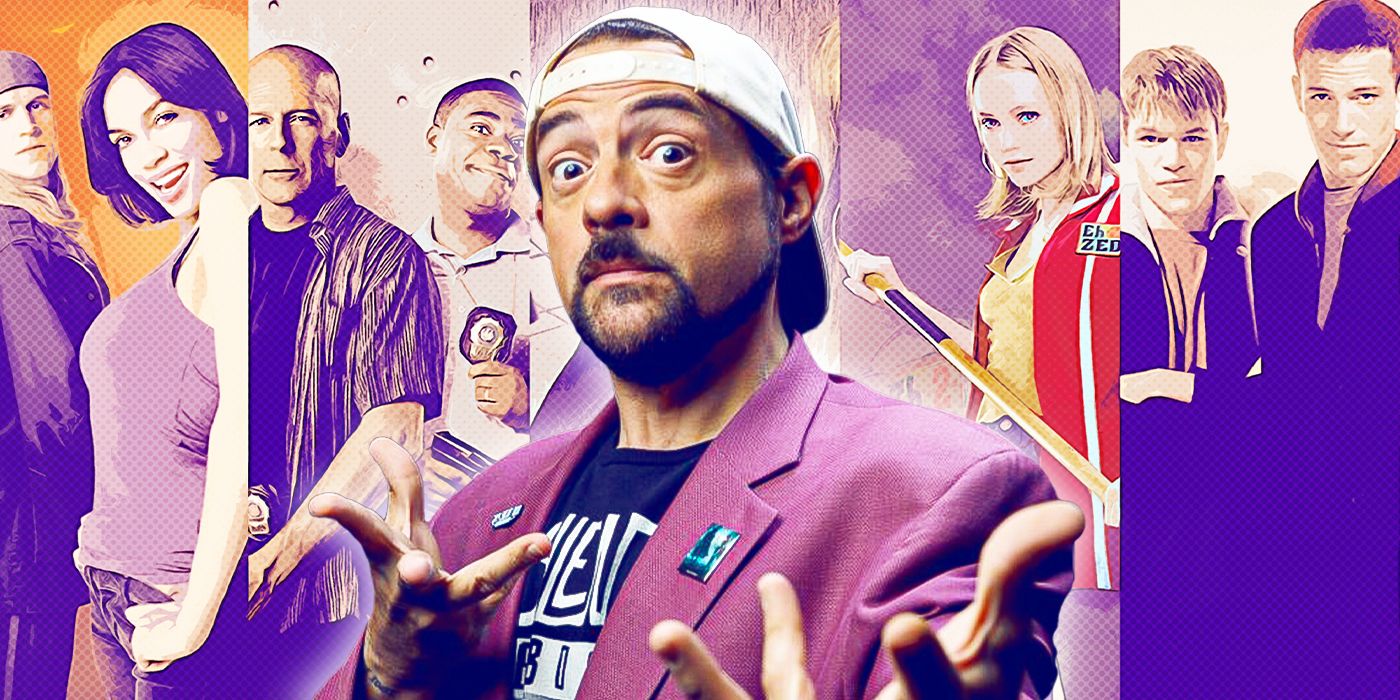
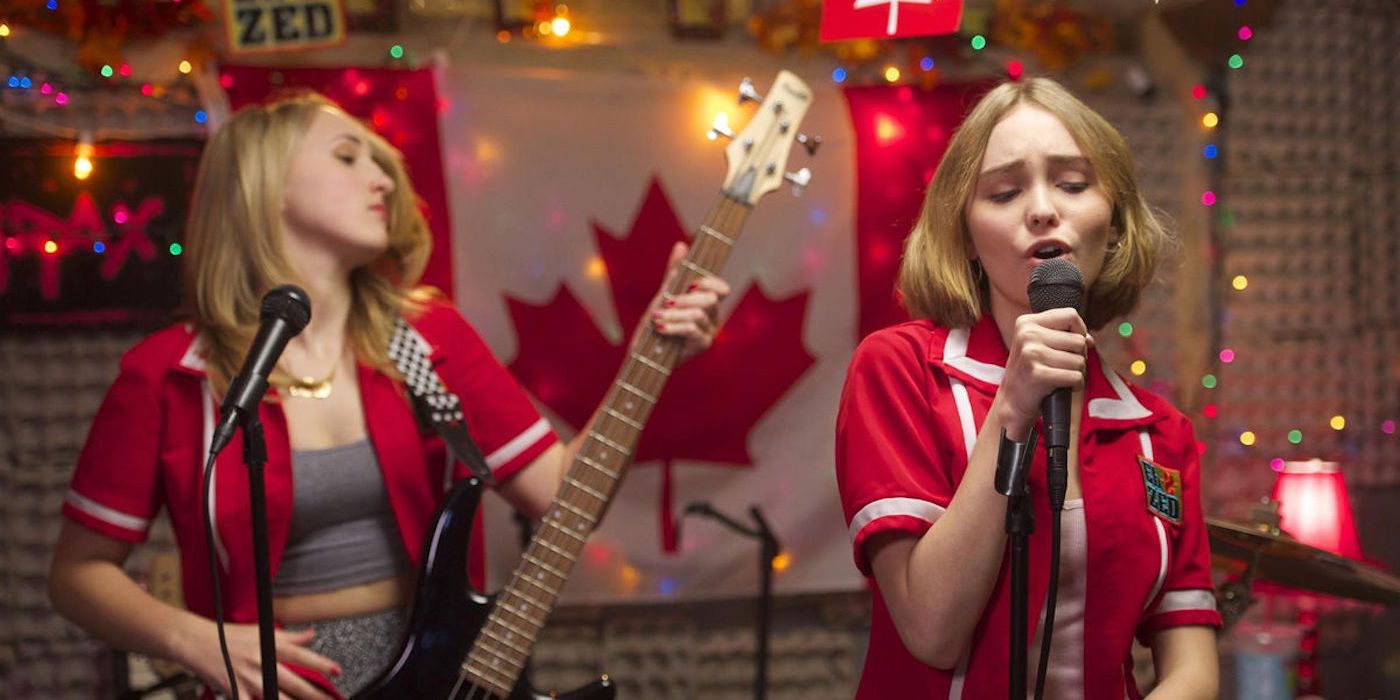

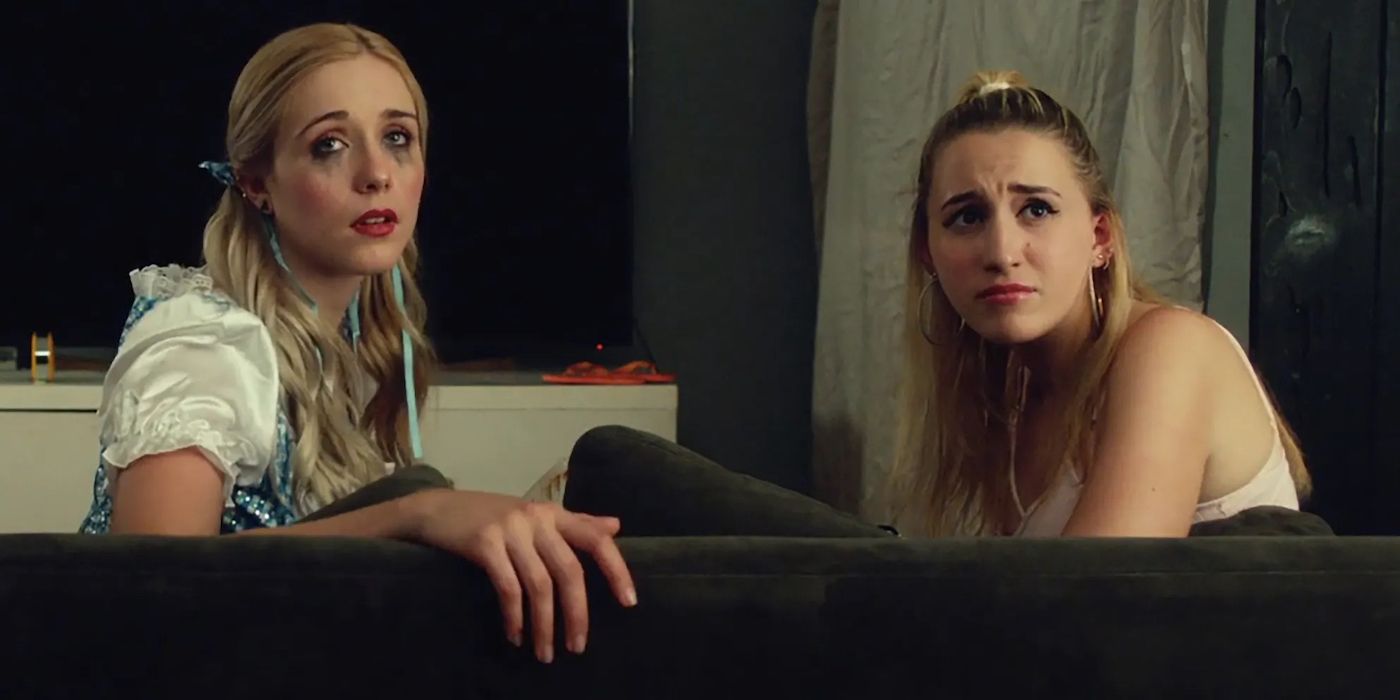
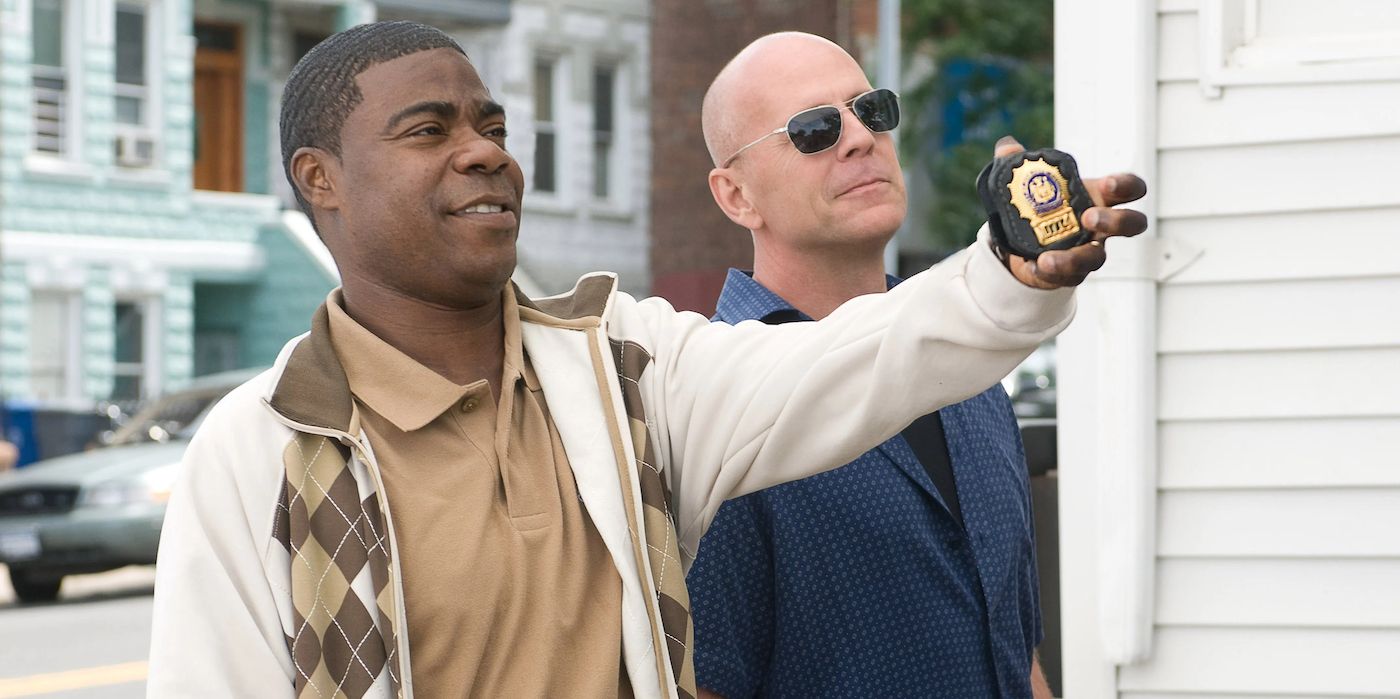
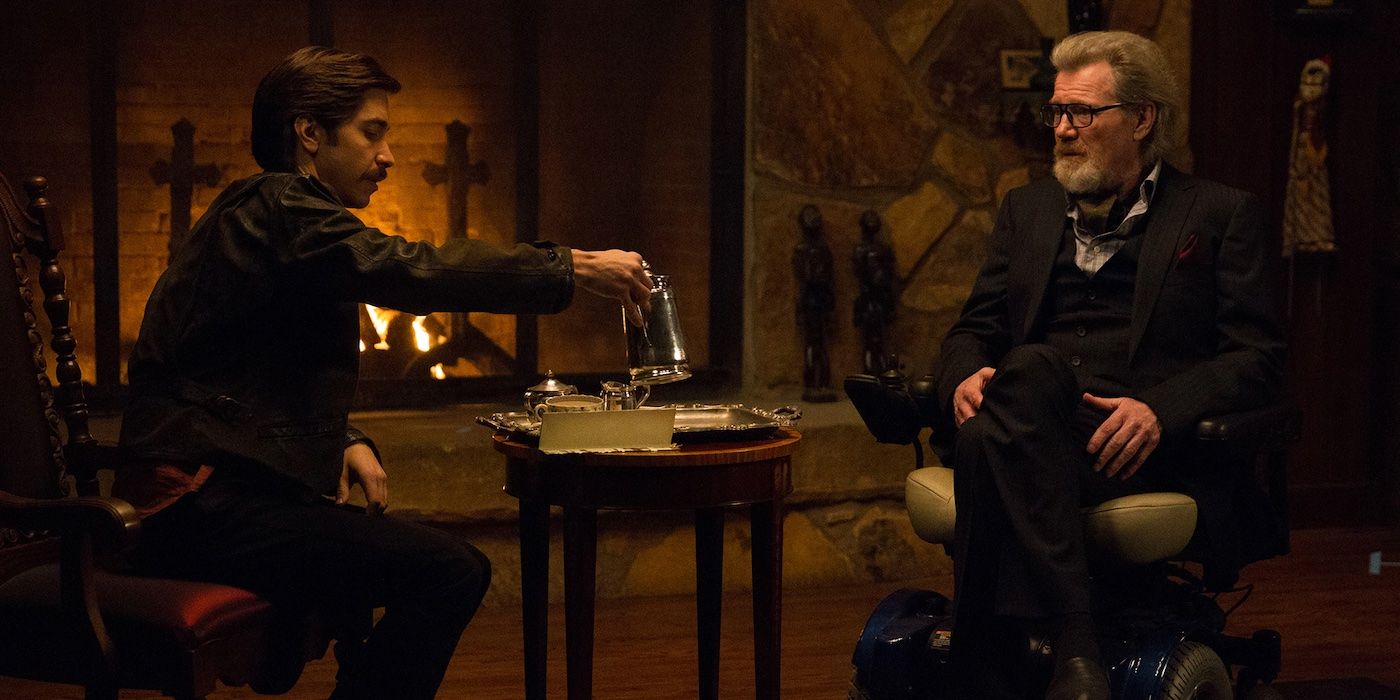
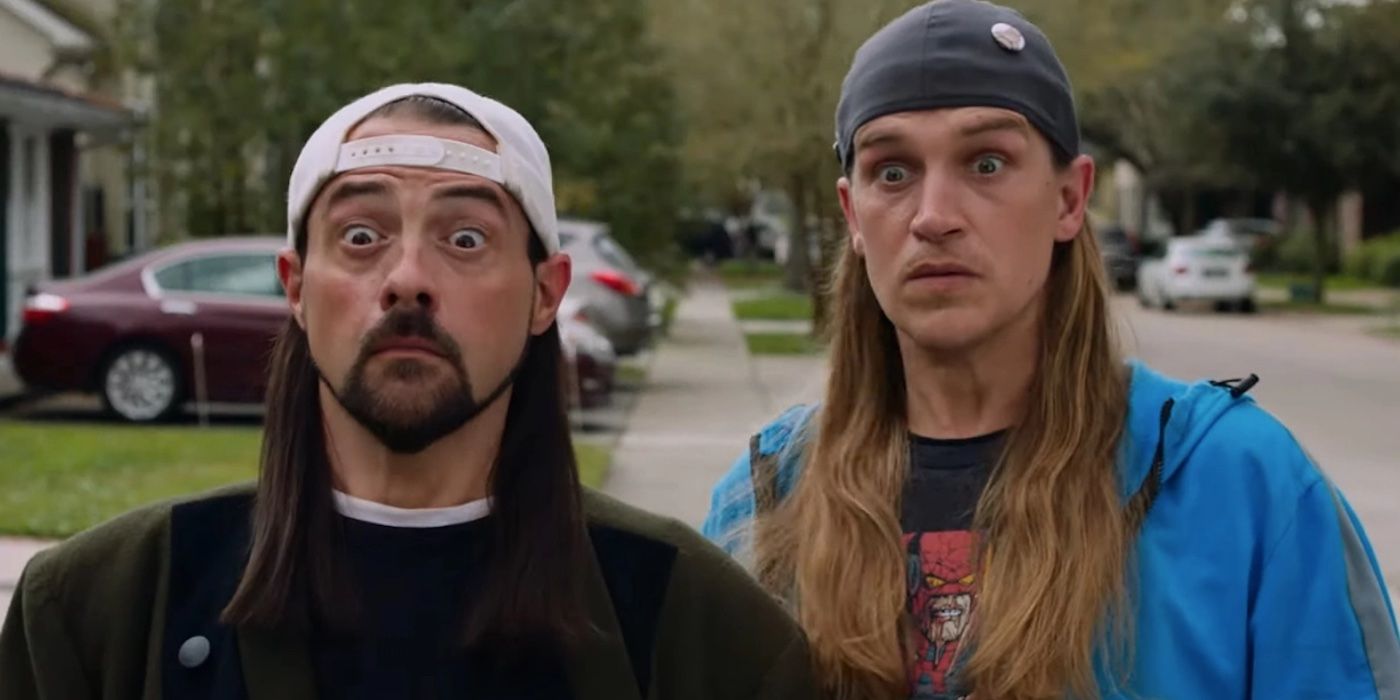
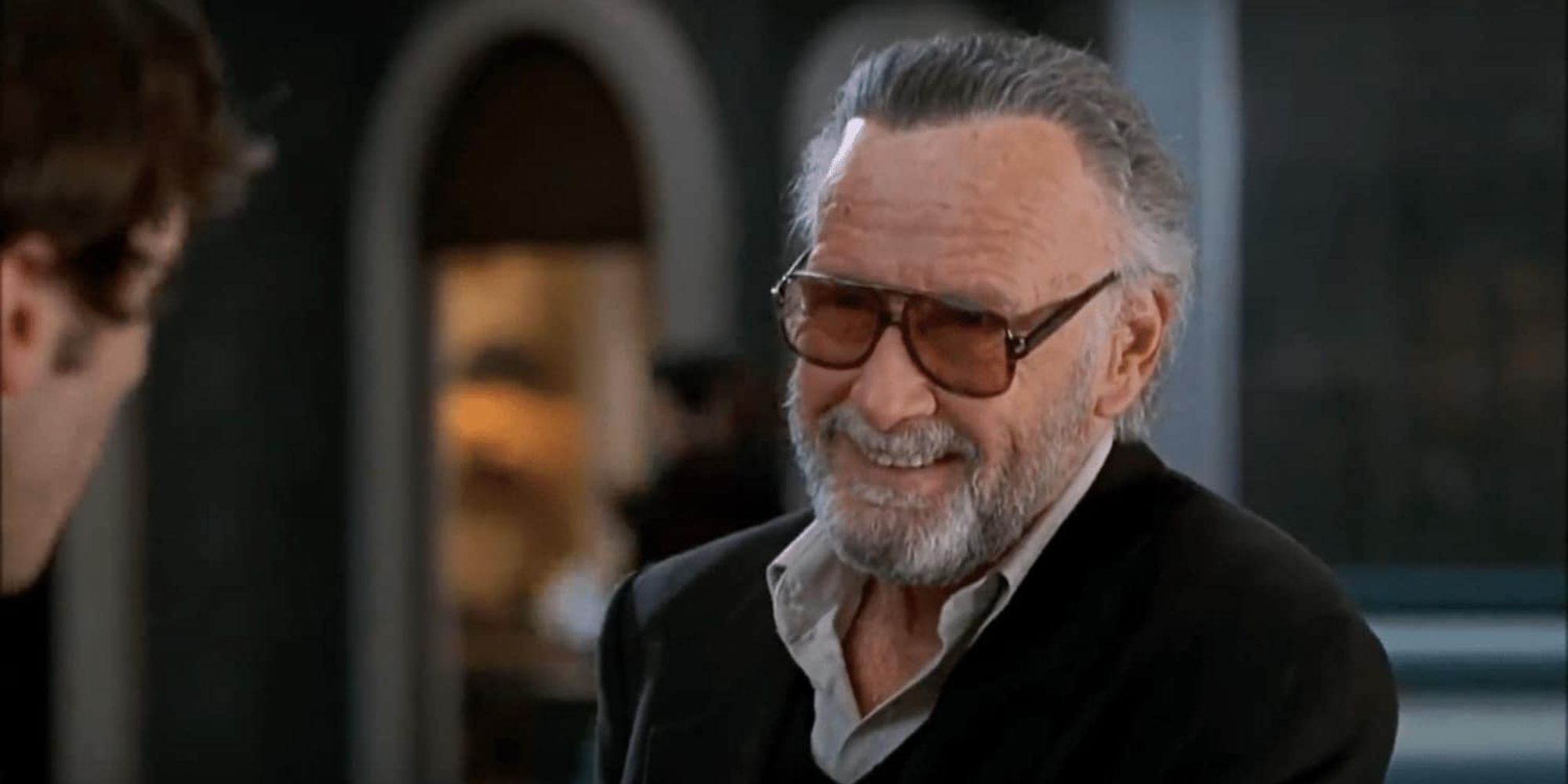
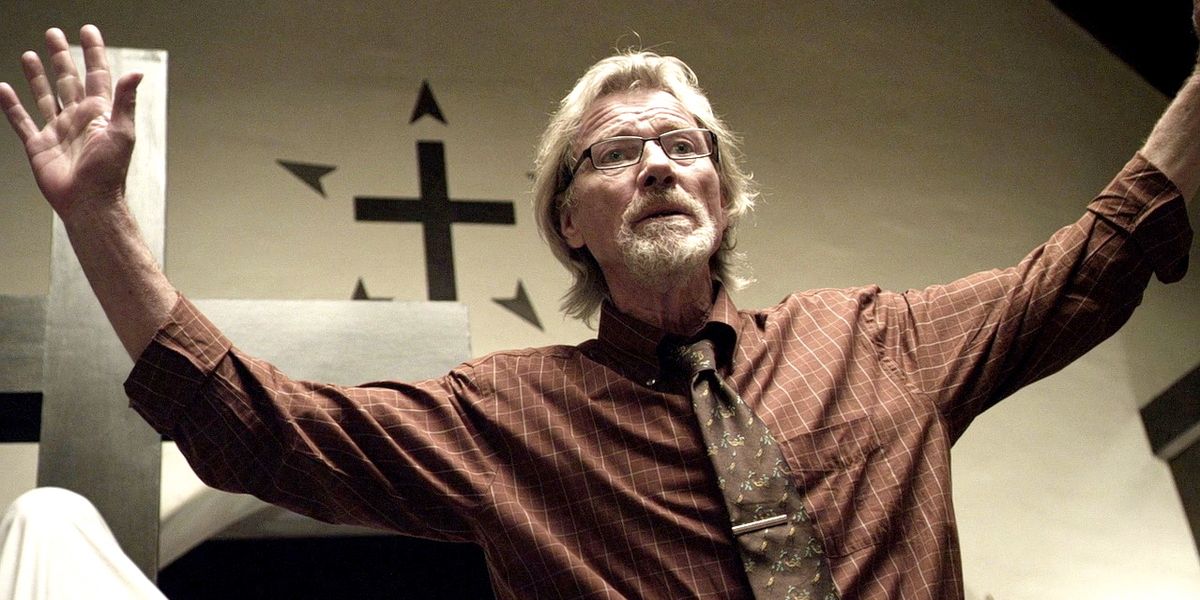
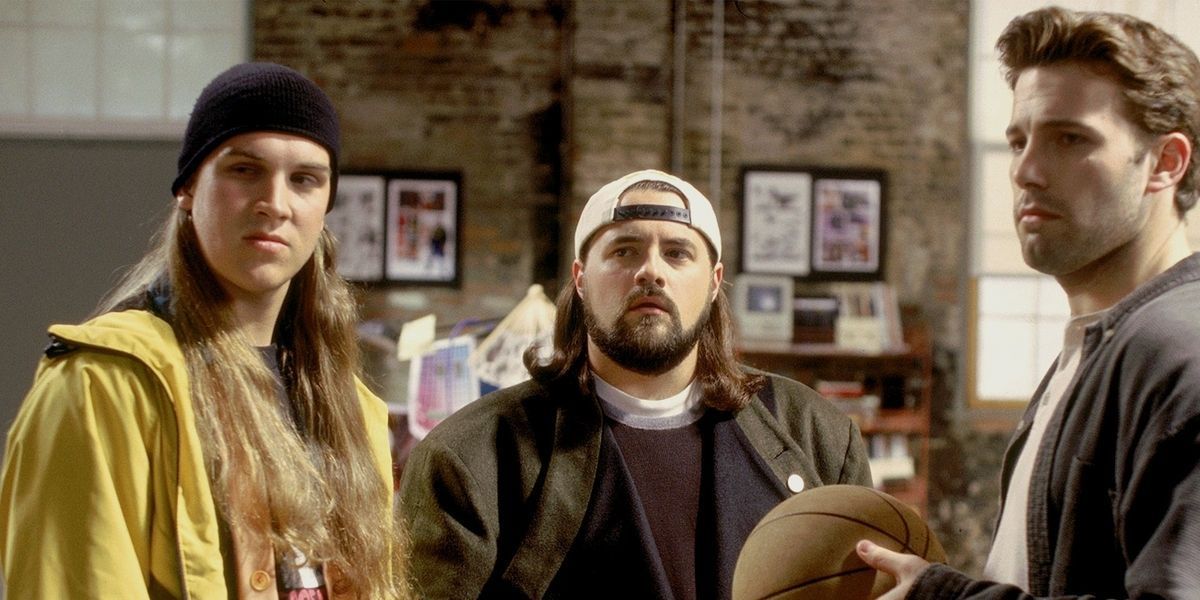
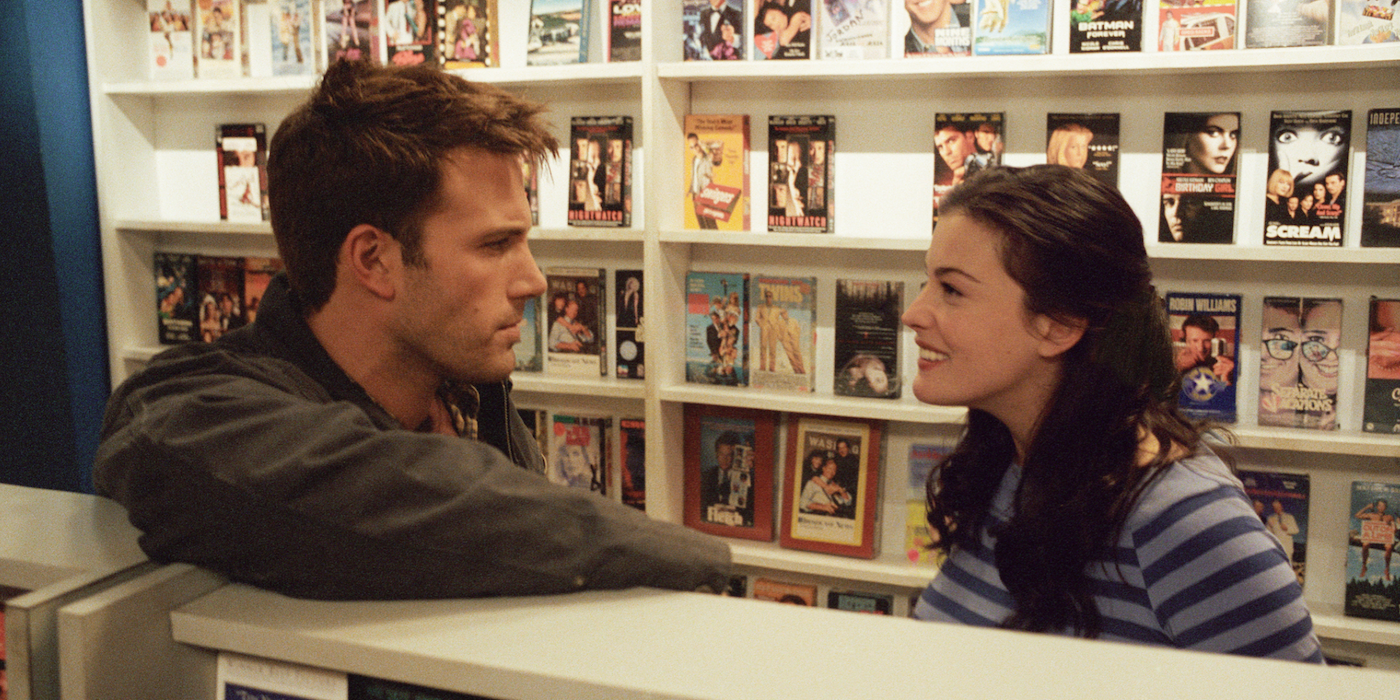
.jpg)
.jpeg)
